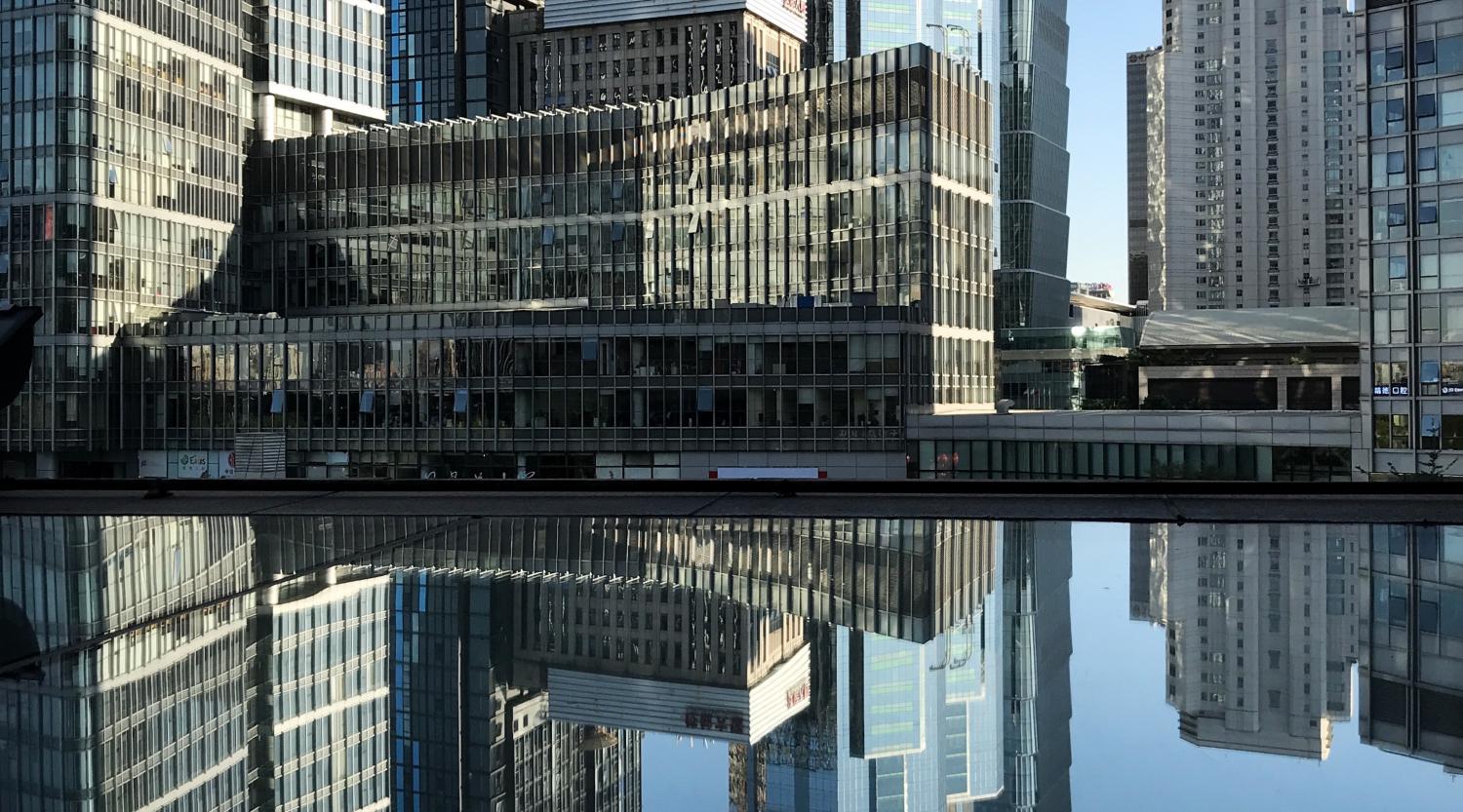In the lead-up to the 19th National Congress this October, Beijing has been undergoing some physical changes. As yet more gleaming architectural marvels are being unveiled, other parts of the city are being cleaned out and 'tidied up', with buildings being knocked down or bricked in. Many have been affected by the roughshod approach, but the resilience of Beijingers is something to be admired.
The part of Beijing I usually stay in is between the quiet, peaceful 'hutongs' (or streets of the old neighbourhoods) and the hyper-modern Sanlitun commercial district. The hutongs are winding and narrow, with their one-storey grey brick buildings, old people sitting on stools playing chess, and children out playing or doing their homework. Over decades, the traditional 'siheyuan' or courtyard homes have been subdivided, re-subdivided, extended, and had extra stories added with little regard for the niceties of urban planning. The result is higgledy-piggledy to say the least, but enormously charming to an outsider. This is no place for rushing efficiency – there will always be a part of the road that is being dug up, or people playing badminton, or some other obstacle to speedy transit.
It's a jarring contrast with Sanlitun, a buzzing hive of shiny, modern, conspicuous consumption. The buildings are jaw-dropping marvels of modern architecture and even if you don't like that kind of thing, you get the message: this is the future.
That message has been underlined without subtlety over the past few months, as the Beijing equivalent of pop-up shops (though many of them have been operating for decade or more) and home additions have been systematically knocked down and bricked up. I can find no clear reason for this. Some people understand it as a drive to clean up the city and clear out unregistered migrants. Some have said it is because the Beijing Mayor is politically ambitious and keen to show President Xi how well he is managing the city in the lead-up to the National Congress; if that is the case, it would help explain the sense of urgency. Shop or home owners are not given a notice of eviction or time to clear out and find new premises. In many cases, people are told that their building will be knocked down or bricked up within days. Contracted labourers then turn up, often protected by a ring of riot police, and proceed to knock the building down and brick up holes. They leave behind a mess of glass, timber and nails
Those I know among the affected seem to accept their losses with equanimity. The owner of one small shop which has been bricked up continues to sell supplies through the tiny window space left in the wall, eight feet above the ground. Customers buy their water and toilet paper by stretching up to scan a WeChat QR code on their phone to pay. It is an odd situation, to say the least.
Not far away, a tailor whose hometown is outside Beijing simply sits in the shade outside his former shop, chatting with his friends and neighbours, with his tape measure and order book in his bag. Customers try clothes on in the nearby public toilets. He will move soon, but hasn't found a place yet. He simply shrugs and says with a wry smile, 'It's because of Xi Jinping, he's improving things, you see.'
Western businesses are also being affected by the Beijing clean-up, but apparently for different reasons. Even those in well-established (and even iconic) locations that have been operating for many years, employ Chinese staff, are fully registered and pay their taxes are being shut down. One international restaurateur has, inexplicably, had his food licence revoked after operating for more than a decade. Other cafes and restaurants, many of which are institutions that draw Chinese and international tourists, are likely to suffer a similar fate.
The result of the efforts to shut down and brick up large parts of Beijing is certainly a tidier city. However, the the lack of transparency, accountability, or any appeals process suggests the Beijing government has taken a rather blunt approach. The primary impulse of decision-makers seems to be to please those above them in the hierarchy by meeting or ideally exceeding neatly quantifiable targets. There appears to be little regard for the wellbeing or livelihoods of the people affected, or the liveability of the city as a whole.
While that may be rather depressing, the humour and resilience of the Chinese people is still apparent. As has so often been said, for every measure from the top, there are multiple creative ways to sidestep it. The people of Beijing accept, reshape, and reinvent. They are the embodiment of flexibility and adaptiveness.

